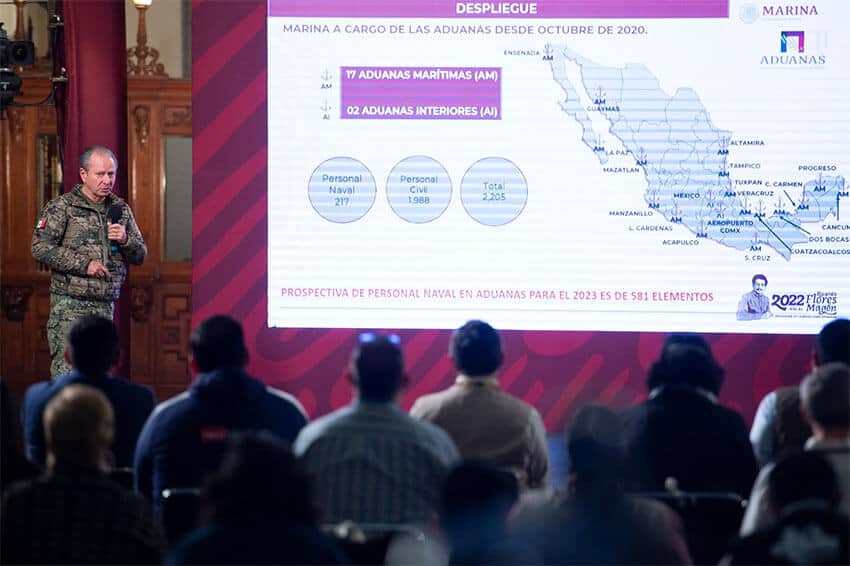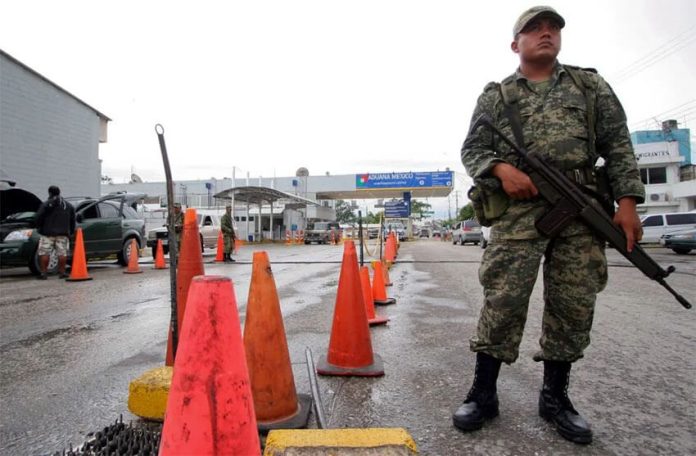The military now has full control of customs after the federal government’s publication of a new decree.
President López Obrador had already given control of most of the nation’s land and maritime customs offices to the army and navy but a presidential decree expands their powers.
The military now has exclusive responsibility for inspecting goods entering the country via land borders, ports and airports.
The National Customs Agency, which the current government created, had been responsible for customs offices at the airports in Guadalajara, Monterrey, Querétaro, Toluca, Torreón, Chihuahua, Aguascalientes, Puebla and Guanajuato but as of Wednesday they are under the control of the Ministry of National Defense (Sedena).

The Ministry of the Navy (SEMAR) controls 17 maritime customs offices and the one at the Mexico City International Airport, while Sedena controls offices at land borders with the United States, Guatemala and Belize and those at many airports including the new Felipe Ángeles International Airport.
The decree, published in the government’s official gazette on Tuesday, also gives the two branches of the military financial responsibility for the operation of customs. Sedena and SEMAR will jointly manage over 81 billion pesos (US $4.1 billion) held in a customs trust.
López Obrador on Thursday defended his decision to assign responsibility for customs to the military, on which he has relied for a wide range of non-traditional tasks since taking office in late 2018.
“It’s more than proven that [customs officials] made a killing,” he told reporters at his regular news conference.
“Corruption dominated, it reigned. I’m not saying that all public servants are corrupt, there are honest people,” López Obrador added.
He said that customs generates 1 trillion pesos (US $50.5 billion) in revenue annually for the government and for that reason he couldn’t leave things as they were. The president said that his administration has cleaned up corruption in customs and more income has ended up in public coffers as a result.
“Corruption has to be combated because that’s what allows us [to have] a source of funding for the development of our country and for the benefit of the people,” López Obrador said.
The government reported in December that more than 2,700 customs agents had been dismissed for corruption since it took office. Customs agents are commonly dismissed for asking for and accepting bribes in exchange for allowing people to bring undeclared or illegal goods into the country.
With reports from Aristegui Noticias, Zeta Tijuana, Milenio and Reforma
